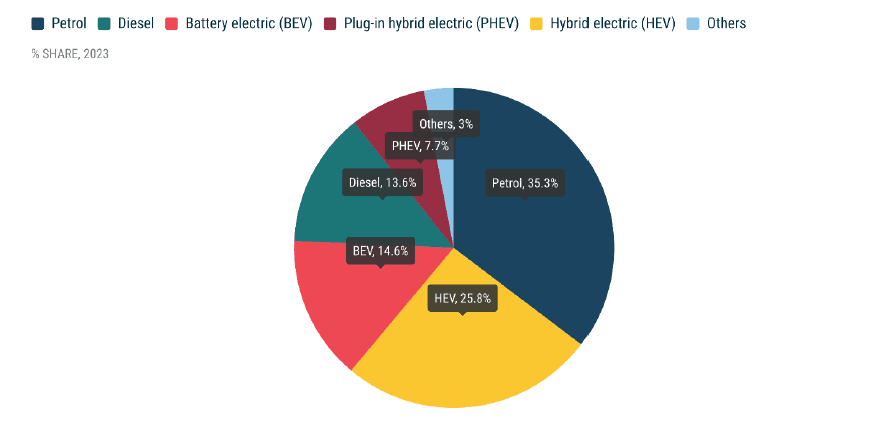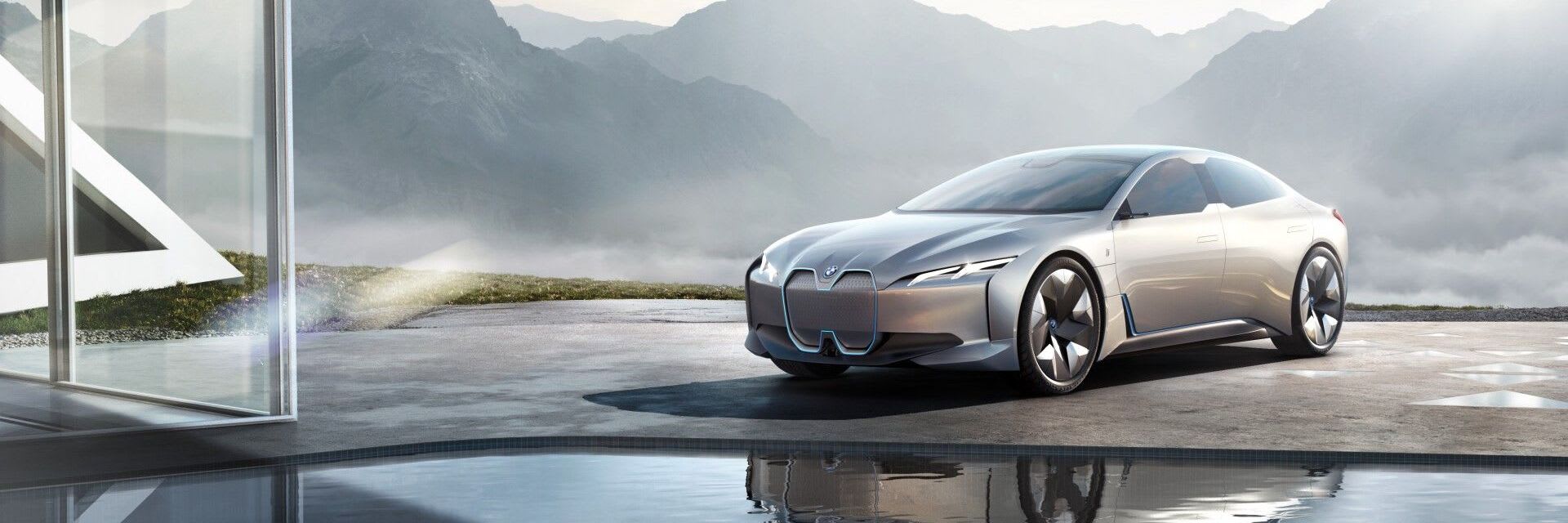New Car Registrations Surge in February 2024: Battery Electric Vehicles Lead the Charge with 12% Market Share
The automotive industry has been witnessing a transformative shift towards electrification in recent years, and the latest car registration figures from across Europe provide concrete evidence of this trend. In February 2024, new car registrations experienced a significant surge, driven by a substantial increase in the uptake of battery electric vehicles (BEVs). This article will delve into the key findings of the new car registration data, highlighting the growing popularity of BEVs and its implications for the automotive landscape.

Overall Market Growth:
Overall, new car registrations in the European Union (EU) and European Free Trade Association (EFTA) countries increased by 10.1% in February 2024 compared to the same month in 2023. This translates to approximately 1.3 million new vehicles registered during the month. This positive growth signals a rebound in consumer confidence and a strong demand for new cars.

Battery Electric Vehicle Dominance:
Battery electric vehicles (BEVs) continued to be the primary driver of new car registrations, with a remarkable 12.0% market share in February 2024. This represents a significant increase from 7.4% in February 2023, showcasing the rapidly accelerating adoption of electric mobility. The surge in BEV sales is largely attributed to government incentives, improved vehicle technology, and increasing consumer awareness of the benefits of electric vehicles.
Hybrid and Plug-in Hybrid Vehicles:
Hybrid and plug-in hybrid vehicles (HEVs and PHEVs) also experienced growth in February 2024. HEVs accounted for 23.5% of new car registrations, while PHEVs had a market share of 10.1%. This growth can be attributed to the increased fuel efficiency and lower emissions offered by these technologies compared to traditional gasoline and diesel vehicles.

Diesel and Gasoline Vehicles Decline:
Diesel vehicles continued their decline in popularity, with a market share of only 19.4% in February 2024, down from 26.2% in February 2023. Similarly, gasoline-powered vehicles declined to 35.0% market share, indicating a clear shift towards alternative powertrains.
Country-by-Country Variations:
The adoption of electric vehicles varied across different European countries. Norway led the way with an impressive 82.2% market share for BEVs, followed by Sweden with 58.7%. Germany, the largest automotive market in Europe, also saw a significant increase in BEV registrations, accounting for 16.5% of new car sales.
Factors Driving BEV Adoption:
The surge in BEV adoption can be attributed to several key factors:
* Government Incentives: Several European governments offer financial incentives, such as tax breaks and purchase rebates, to encourage the purchase of electric vehicles.
* Improved Battery Technology: Advances in battery technology have increased the range, performance, and durability of electric vehicles.
* Increased Charging Infrastructure: The expansion of electric vehicle charging infrastructure has made it easier for drivers to charge their vehicles conveniently.
* Environmental Awareness: Growing consumer awareness of the environmental benefits of electric vehicles has contributed to their increased popularity.
Impact on the Automotive Industry:
The growing uptake of electric vehicles is having a significant impact on the automotive industry. Traditional car manufacturers are investing heavily in the development and production of electric vehicles to meet the changing consumer demand. New companies specializing in electric vehicle production are also emerging, challenging the established automotive giants.
The strong growth in new car registrations and the dominance of battery electric vehicles in February 2024 are expected to continue in the coming months and years. Governments across Europe are setting ambitious targets for the electrification of their vehicle fleets, and the automotive industry is responding accordingly. This transition towards electric mobility will have far-reaching implications for the environment, the energy sector, and the automotive industry itself.
